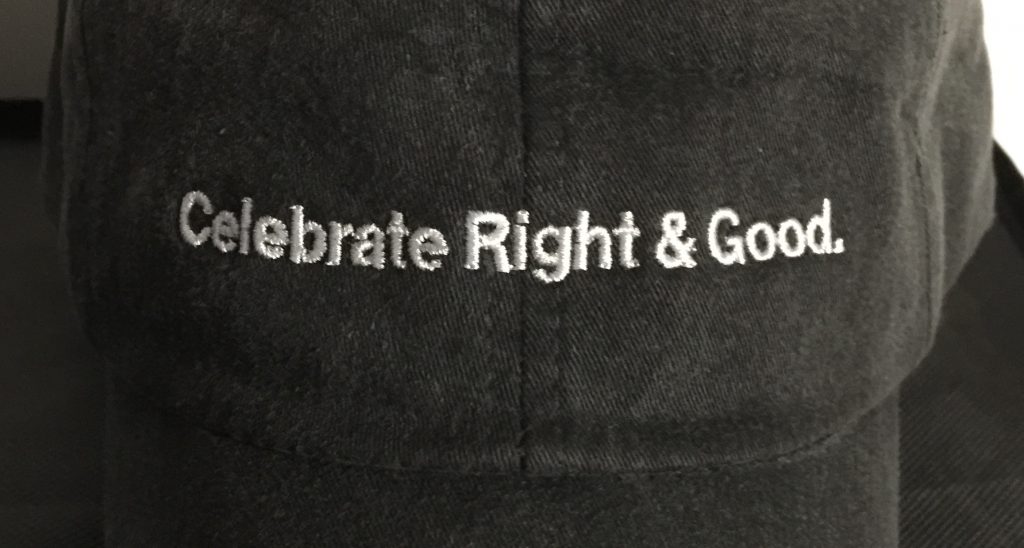Dear friends,
A few weeks ago, I met an extremely kind woman at the airport. She looked at my hat and read it out loud: “Celebrate right and good.” She then said with feeling, “That’s exactly what we need today!” I told her that’s the motto of BitterSweet, the publisher of my new book, and she generously asked me to tell her about it.
I told her it’s called Practice Flourishing, and she immediately said that she loved the title and wanted to buy it. When I told her the subtitle — The Spirituality of Jesus — she responded, “You lost me there. I’m a good Jewish girl. But I’ll buy it for my Christian friend.”
I replied, “I hear you: Christians have done terrible things to Jews for centuries. But Jesus was a good Jewish boy, and the book is for everyone.” But I could tell she had made up her mind and wasn’t interested.
She continued by saying that humans have never managed to “celebrate right and good” throughout history. She referred to America’s genocide of Native Americans and slavery, the German Holocaust, and other atrocities. I was nodding my head in agreement with her. She then expressed her outrage that a football player recently said that he’d like to share a meal with Hitler to ask him why he did what he did. She found this “insane.”
I was touched by her kindness. She reached out to a complete stranger to express her support for “celebrating right and good.” She wanted to talk with me and hear about my book; this was so encouraging to me! And she freely shared her thoughts and wrote down the title of my book so she could buy it for her friend.
But two things troubled me.
First, she assumed that if a book is coming from a different perspective than her own, it’s irrelevant to her. Of course, many people — including many Christians — have the same assumption.
But I believe this is one of the crucial ways that we derail celebrating right and good today: we assume that “right and good” can only really come from our identity group. If it doesn’t, we’re not interested.
Second, the idea of talking to the enemy is seen as insane. To be clear, Hitler perpetrated horrific evil, leading to the murder of 6 million Jews and other minorities. Nothing could or should ever minimize this catastrophic evil.
Still, if we condemn talking to “the enemy,” haven’t we accepted their playbook? We assume that we’re completely different and that separation or violence is the only way forward. In many ways, that was Hitler’s basic ideology: total difference requiring total separation or total violence.
So, yes, we need to celebrate right and good. But this practice is more surprising and challenging than we often imagine. Goodness requires us to actively engage with people from other perspectives. And it also requires us to recognize that none of us are completely different, even our worst enemy. And that opens the door to the possibility of dialogue and appealing to someone to change their mind, even if the probability of success is extremely small.
This essay is not intended to cast any judgment on this kind stranger. I don’t know her personal story and how it has formed her views. She encouraged me, and I’m truly grateful.
But she reminded me of something close to my heart: we can celebrate right and good in the most surprising places with people we never expected. May God energize us to look for this and practice it without giving up.




